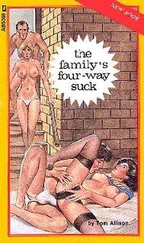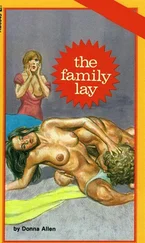“The anonymous phone call?” I ask. “What, Ellen? You have to tell me.”
“I think it was school. Because of George.”
“School?” I pull over to the side of the road, cricking my neck in the process. “You think someone at school is threatening me, telling me to go back to London? Who would do that?”
“I don’t know who. If I knew, I’d say the person’s name and not just ‘school,’ wouldn’t I?”
“But . . . if you’re saying it at all, you must have some idea.” Another unmarked crossroads I wasn’t prepared for. It would never have occurred to me in a million years to connect the two creepy phone calls with Ellen’s friend being expelled.
What the hell is going on here?
“Ellen, you need to tell me everything you know. This isn’t funny.”
“I don’t know anything.”
“Then tell me what you suspect.”
“I’ve told you! I think whoever’s calling and trying to drive us away is someone from school. One of the teachers.”
“And you also think the school wants to be rid of George and Fleur, and they’ll do whatever it takes to achieve that, even framing them for offenses they haven’t committed?”
“Yes,” says Ellen with feeling.
I’ve never heard anything so unlikely in my life. Yet my daughter believes it.
“Why?”
“Dunno.”
“Oh come on, Ellen, you can do better than that. I need to know everything before I go in there and kick off.”
“I don’t want you to kick anything!” She covers her face with her hands. “I want you to drop me off and go home! There’s nothing you can do. They won’t take George back, and we’ll have to put up with more horrible phone calls.”
It takes me a few seconds to work out what she means. “The horrible calls I’m getting are because you stuck up for George?”
She seems to be thinking about it. “I don’t know,” she mutters after a while. “I don’t know . . . everything.”
“Then tell me everything you do know, even if it’s not much. Please, Ellen. What are you keeping back?”
A long silence. Then she says, “You’re getting the calls because you’re picking up the phone. It’d be too obvious if they asked for me, but it must be about me. You haven’t got any enemies in Devon, have you? You haven’t been making a nuisance of yourself, calling the head teacher a crazy tyrant. I have!”
Then why haven’t I been summoned to the school for an earnest talking-to? None of this adds up.
“Whoever it is, she’s telling you to go back to London knowing you’ll take me with you,” says Ellen. “I’m the one they want gone. I’m the one sticking up for George—the only one!”
I can’t bear the idea of anyone thinking of Ellen as an enemy, especially when her only crime is loyalty to her friend.
We’ll leave Kingswear. Tomorrow. Stuff the new house and the new life . . .
No. That’s insane. What Ellen is saying is insane. There has to be another explanation. I love my daughter, but she might be wrong.
I can’t tell her what I’m thinking; it would only make her believe I’m against her too.
“Why would the school have it in for George and Fleur?” I ask. “Are they particularly difficult pupils?”
“No. But it’s not only the children the school gets landed with, is it? See exhibit A.” Ellen points at me, attempting a smile. “Angry parent on the rampage.”
“Right, so it’s not about George and Fleur, then? Them as individuals, I mean.”
“It’s about the Donbavands,” says Ellen. “They’re a particularly difficult family.”
Chapter 2
The Perrine Compromise, and Taking Turns
Perrine, the third daughter of Bascom and Sorrel Ingrey, was brought up in a way that could be called the very definition of compromise. Her parents—both of them equally, in full cooperation—made sure she did her homework so that she never got into trouble at school. They also encouraged her to play a musical instrument, and made sure she did the amount of flute practice that her flute teacher said would be ideal, but when after a year Perrine said she hated these lessons and didn’t want to play the stupid flute anymore, her parents let her give up.
When she got home from school, she was allowed to do what she wanted until dinnertime, unless what she wanted to do happened to be so ridiculous that it wouldn’t be a sensible choice. So, unlike her sister Allisande, who had once spent an entire afternoon squirting pink conditioner all over an expensive Persian rug without either of her parents making a move to stop her, Perrine was allowed to do whatever she wanted within reason .
Her diet consisted mainly of lean meat, healthy oily fish, leafy green vegetables, juicy fruits and fibrous wholegrain cereals, but once a week she was allowed a delicious chocolatey treat, and sometimes she got to eat chips or crisps, though not too often. She was allowed sweets at Christmas, and Easter eggs at Easter. (Lisette wasn’t. To this day, she thinks chocolate is evil and will not countenance its presence in her home. And Allisande wouldn’t know the difference between broccoli and spinach if her life depended on it.)
Perrine was made to tidy her room once a week, but didn’t get into trouble if it got a bit messy in between these times. (This was very different from the case of Lisette, who had been taught from day one that she must keep her room meticulously tidy at all times, and that anything found not to be in its proper place would be instantly thrown in the outside bin with no hope of it ever being retrieved.)
Up to a point, Perrine was allowed to choose what to wear. She wasn’t prevented from dressing up as a princess as Lisette was (because her Socialist father disapproved of any collaboration with the monarchy), but neither was she allowed to walk to the nearest shops in the rain wearing nothing but a black bikini, a pink string vest and flip-flops, as Allisande was when she was only nine.
Friends, acquaintances and members of the extended family were relieved when Perrine came along. “Finally!” they said to themselves and to each other. “Finally Bascom and Sorrel Ingrey are bringing up a child in a normal, well-balanced way.” All those people ought to have been more cautious in their celebratory banter. They ought to have kept in mind that, in spite of their extreme upbringings at either end of the strict-to-lenient spectrum, Lisette and Allisande were both very nice girls.
Perrine Ingrey, on the other hand, would not have been described by anybody as a pleasant child. She was sulky, selfish, prone to enormous tantrums, spiteful and dishonest. She never laughed or made anyone else laugh, and she didn’t have a grain of charm in her. She looked lumpy and had a lumpy, difficult personality to go with her looks. It was impossible to find any good in her at all, however hard you tried. Bascom, Sorrel, Lisette and Allisande all tried very, very hard, and, until Perrine was murdered, they never gave up, but it seemed that nothing could be done to improve Perrine’s character.
“How can this have happened?” everybody in the nearby villages and towns asked, when Perrine Ingrey and not one of her sisters was said to have murdered Malachy Dodd. “Isn’t she the third child?” they asked. “The one who was brought up normally?”
This proves that ninety-nine people out of a hundred refuse to use their brains most of the time. True, Perrine was brought up in a well-balanced way that was a model of compromise, but both of her parents were constantly frustrated because they were unable to do things entirely their own way. Neither Bascom nor Sorrel could think, “Ah yes, I am rearing this child precisely as I believe a child should be reared.” And neither of them could think, “I’m rearing this child in a way that’s the exact reverse of the method I think is best”—which is a far more calming notion than you might think, because you simply submit and follow someone else’s ideas, instead of feeling as if your way is making progress one minute, then being thwarted the next.
Читать дальше











